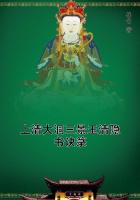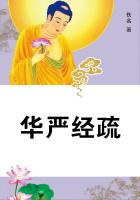Vigorous action by a central authority had been impossible so long as power had been parcelled out among a number of different centres,each regarding its privileges as invested with all the sanctity of private property.The duke,who claimed that he 'might do as he would with his own'--including his boroughs --had surrendered that part of his property to the new voters.They enjoyed their rights not as a personal attribute,but ill virtue of satisfying some uniform condition.For the time,indeed,the condition included,not simply a ripe age and masculine sex,but 'ten-pound householdership.'Power held by men as members of a class is,at any rate,no longer private property,but something belonging to the class in general,and naturally used in the interests of the class collectively.The legislature could make general rules where it used rather to confirm a set of distinct bargains made with each proprietor of ultimate authority.So far,the generalising and centralising process was both inevitable and approved by the Utilitarians.Nor could they,as prominent advocates of codification and law-reform generally,object to the increased vigour of legislation no longer trammelled by the multitude of little semi-independent centres.But a further implication often escaped their notice.'Liberty'is increased by destroying privilege in the sense that the individual acquires more influence upon the laws that bind him.But it does not follow that he will be 'freer'in the sense of having fewer laws to bind him.The contrary was the case.The objection to the privileges was precisely that the possessors retained them without discharging the correlative functions.The nobles and the corporations had not been too active,but too indolent.They had left things undone,or left them to be done after a haphazard fashion by individual energy.The much-lauded 'self-government'implied an absence of government,or precisely the state of things which was no longer possible when the old privileges were upset.The newly organised municipalities had to undertake duties which had been neglected by the close corporations,and others which had been clumsily discharged by individuals.The result was that the philosophical radicals found that they were creating a Frankenstein.They were not limiting the sphere of government in general,only giving power to a new class which would in many ways use it more energetically.The difference came out in the economic matters where the doctrine of non-interference had been most actively preached.The Chartists and their allies claimed their 'rights'as indisputable possessions,whatever might be the consequences.To the Utilitarians this meant that the Chartists were prepared in the name of a priori principles to attack the most necessary institutions,and fly in the face of 'laws of nature.'The old system had tended to keep the poor man down.The Chartist system would help him to plunder the rich.The right principle was to leave everything to 'supply and demand.'As the contrast became clearer,some of the philosophical radicals subsided into Whiggism,and others sank into actual Tories.Mill remained faithful,but with modified views.He had seen in the hostility of the lower classes to sound economy an illustration of the ignorance,selfishness,and brutality of the still uneducated mass.(4)But he drew a moral of his own.The impression made upon him by Tocqueville's Democracy in America is characteristic.That remarkable book led him to aim at a philosophical view of the whole question.It was an impartial study of the whole question of the social and political tendencies summed up in the phrase,'democracy.'The general result was to open Mill's eyes to both the good and evil sides of democracy,to regard democracy in some shape as inevitable instead of making it a religion or denouncing it as diabolical;and to consider how the evils might be corrected while free play might be allowed to the beneficial tendencies.It enlightened him,he says,more especially on the great question of centralisation,and freed him from the 'unreasoning prejudices'which led some of the radicals to oppose even such measures as the new Poor Law.(5)So much may indicate Mill's general attitude;and,if his conclusions were questionable,the main purpose was so far eminently philosophical.
Mill begins his Liberty by insisting upon the danger to which his attention had been roused by the course of events.The conflict between liberty and authority led to the demand that rulers should become.responsible to their subjects;and when this result was secured,a new evil appeared.The tyranny of the majority might supplant the tyranny of rulers;and,if less formidable politically,might be even worse spiritually.'Social tyranny'may be more penetrative than political,and enslave the soul itself.(6)In England the 'yoke of law'may be lighter,but the 'yoke of opinion'is perhaps heavier than elsewhere in Europe.When the masses have learned their power,they will probably be as tyrannical in legislation as in public opinion.(7)The purpose of his essay is to assert 'one very simple principle'by which this tendency may be restrained.That principle is (briefly)that the sole end which warrants interference with individual action is 'self-protection.'He will argue not from 'abstract rights,'but from 'utility'understood in its largest sense,and corresponding 'to the interests of a man as a progressive being.'
II.INTELLECTUAL LIBERTY
The principle thus formulated is applicable both in the sphere of speculation and in the sphere of conduct.Mill first considers 'liberty of thought and discussion.'He has here the advantage of starting from a generally admitted principle.Every one now admits,in words at least,the doctrine of toleration.















